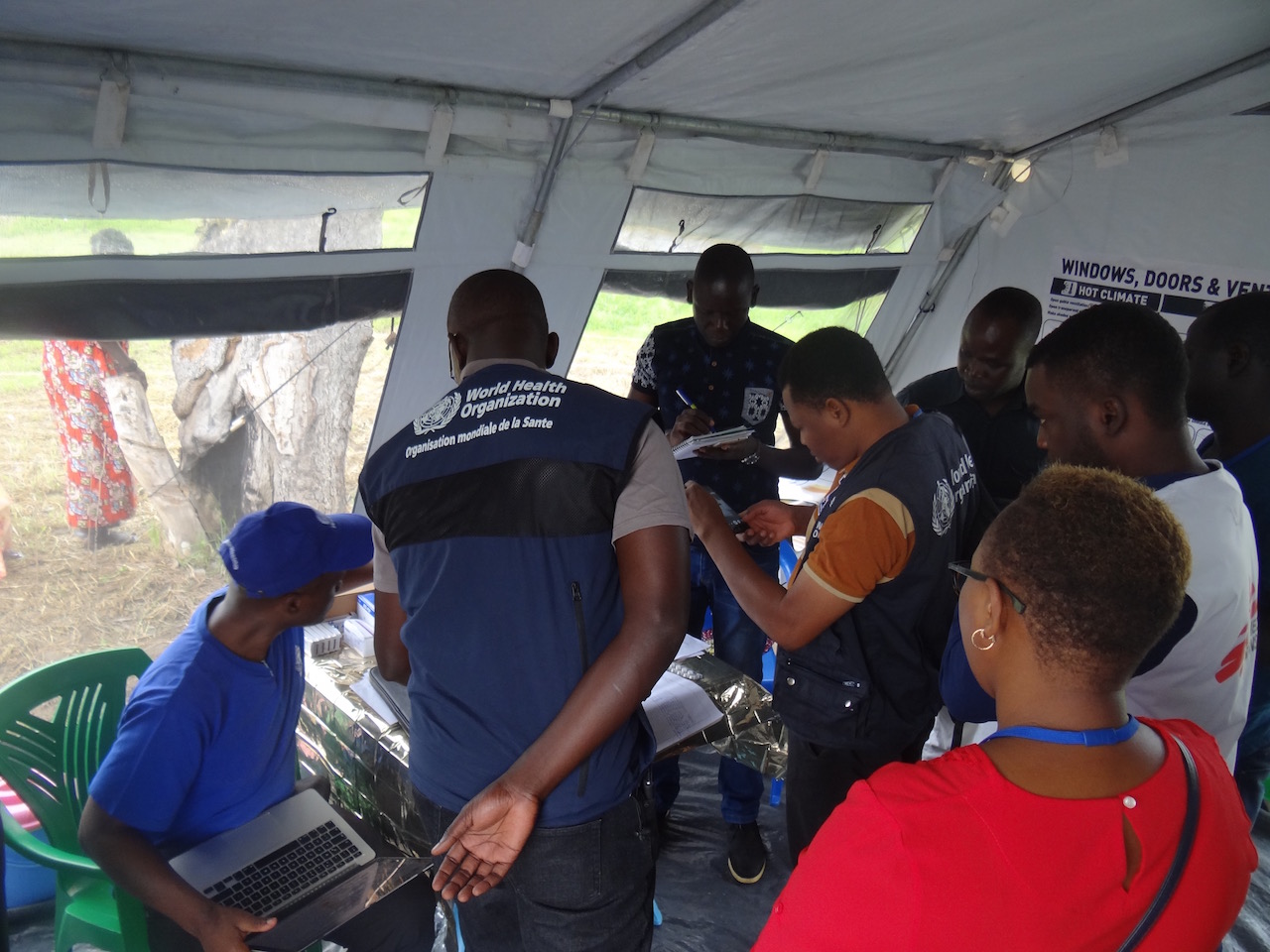WHO: To combat cholera in South Sudan
July 14th, 2017Cholera contributes substantially to the disease burden in South Sudan, where outbreaks have been confirmed every year since 2014. Thus, cholera is endemic in South Sudan and requires an integrated and comprehensive approach that entails surveillance, patient care, optimal access to safe drinking water, sanitation, and hygiene (WASH); social mobilization and complementary use of oral cholera vaccines.
During the week ending 2 July 2017, a total of 304 new cholera cases and 0 deaths (Case Fatality Rate –CFR 0%) were reported across South Sudan. As of 2 July 2017, the cumulative total number of cases since the start of the current outbreak on 18 June 2016 is 17, 242 cases and 320 deaths (CFR 1.8%). The counties with active cholera transmission include Tonj East, Juba, Lankien, Pieri, Panyijar, Yirol East, Yirol West, Kapoeta East, Kapoeta South, and Kapoeta North. Suspect cholera cases are being investigated in Torit and Terekeka.
The integrated and comprehensive approach is core to the current cholera response in South Sudan. The cholera response strategy in South Sudan includes; case management, improving access to safe drinking water and sanitation; health promotion, risk communication, and community engagement; surveillance; patient care; and complementary use of oral cholera vaccines.
As a result, cholera transmission in Bor, Mingkaman, Duk, Ayod, Bentiu, Leer, Aburoc, Malakal Town, and several other areas has been controlled. The National cholera taskforce chaired by the Ministry of Health and co-chaired by WHO is leading the current response through its coordination, surveillance, case management, WASH, and social mobilization working groups.
Coordination
Overall coordination of the cholera response at the national level is coordinated by the National cholera taskforce.
At the sub-national level, cholera taskforce committees are coordinating the cholera response in locations with active transmission including Yirol East and Yirol West, Bor, Duk, Tonj East, Kapoeta South, Kapoeta North, and Kapoeta East. Other non-affected states have also initiated cholera preparedness meetings in Aweil, Torit, Wau, Yambio, and Rumbek.
Health cluster support in coordination with the humanitarian partners responding to cholera outbreak and donors to fund cholera response in different locations.
Case Management
At least 50 cholera treatment facilities including cholera treatment centers and units; and oral rehydration points are currently operational in the areas with active cholera transmission. The cholera case management working group is coordinating patient care activities that are driven by the need to ensure timely access to rehydration at household level and at designated cholera treatment facilities. Ministry of Health-led and WHO supported rapid response teams have been deployed to support the cholera response in Kapoeta, Tonj, Jonglei, Eastern Lakes, and Northern Upper Nile states. The teams are evaluating transmission dynamics among the nomadic migratory communities in Kapoeta and devising appropriate epidemiological structures to break the chain and pattern of cholera transmission in this group. WHO, UNICEF, and health cluster partners have delivered cholera kits for patient care in areas with active transmission.
Water, Sanitation and Hygiene (WASH)
The WASH response is led by the WASH cluster and its partners and with interventions delivered as part of the integrated comprehensive approach in affected and at-risk areas. Point of use water treatment using PuR and water treatment tablets, hygiene promotion, distribution of other WASH NFIs, and repair of hand pumps are core to the current emergency WASH response in affected and high-risk areas. WHO is enhancing WASH capacities in cholera treatment facilities through training, deployment of public health officers, and water quality surveillance in affected and at-risk areas. Arrangements have been finalized for an intercountry planning meeting between South Sudan, Uganda, and Kenya to mitigate the risk of cross-border cholera spread.
Surveillance
With support from WHO, the Ministry of Health has rolled out electronic and mobile reporting of cholera alerts as well as cholera case based line listing in all affected locations. This has enhanced the transmission and accuracy, analysis, and dissemination of cholera situation reports to inform the response. Rapid response teams have been activated and supported with cholera investigation kits to facilitate timely verification and investigation of suspect cholera cases. Out of the 624 cholera samples tested by the National Public Health Laboratory, 247 (39.6%) have been confirmed by culture since 18 June 2016.
Social Mobilization
Partners have supported the Ministry of Health to intensify Social mobilization in the affected communities through community social mobilizers, and use of educational materials. WHO in collaboration with UNICEF and MOH has reactivated Cholera hotline (1144) Vivacell Telecom hotline to respond to calls, inquiries, alerts and as well as provide education on cholera prevention and control.
Oral cholera vaccination
As part of the ongoing cholera response, cholera vaccines have been deployed in Leer, Bor PoC, Malakal Town, Bentiu PoC, Mingkaman IDP settlement, Aburoc IDPs, Bentiu/Rubkona Town, Ayod (Pagil, Tar, Jiech, Karmun, Padek, and Kandak), and Juba (Don Bosco IDPs). Out of the 544 140 doses secured by WHO in 2017, a total of 384 971 doses have been deployed. There are no cholera cases reported from any of the sites where the oral cholera vaccines have been deployed in 2017.
An additional two million doses of oral cholera vaccines are required to mitigate the risk of cholera in high risk areas and to interrupt transmission in the areas with ongoing transmission. WHO is in the final stages of securing these additional doses to complement the ongoing cholera response.
WHO’s contribution to the cholera response
WHO provides overall technical guidance to MOH and health partners towards the cholera response. We also support to surveillance and cholera investigation as well as case management by deployment of Rapid Response Teams (RRTs), Clinicians, and support to WASH in Cholera Treatment Centers (CTCs) and monitoring standards of care.


